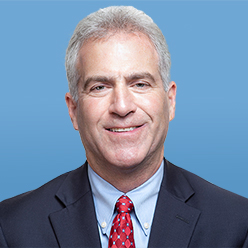It was 60 years ago this week that an uncertain new president launched an ill-conceived military venture of astonishing naivety. The scheme was straightforward and audacious: 1,400 U.S.-trained Cuban exiles would land at the Bay of Pigs and ignite a populist uprising that would topple a Soviet-backed communist revolutionary by the name of Fidel Castro.
It was an unmitigated disaster.
With an army of 25,000, Castro quickly quashed hopes of an uprising as his forces killed more than a hundred exiles and imprisoned most of the others, and President John F. Kennedy suffered an embarrassing global setback just three months into his presidency.
Worse, the disaster came just weeks after JFK had launched his Alliance for Progress, which was supposed to set a new tone in U.S.-Latin American relations. Rather than continue to back right-wing regimes that supported U.S. interests in the region, the United States would provide billions in aid in exchange for political and economic reforms that would improve the lives of hundreds of millions of people.
The Alliance was designed to burnish America’s image in Latin America, but the Bay of Pigs buried those hopes by resurrecting the specter of U.S. imperialism in a region that had seen more than enough of it.
The fiasco had a silver lining, however, for it forced JFK to take stock, re-evaluate his approach to global challenges, see the world clearly, and act accordingly – in essence, to learn from his mistake.
It’s an approach that remains both important and timely, however different are the challenges that President Joe Biden now faces.
More than anything, Kennedy learned that he would have to challenge the details and weigh the potential pitfalls of military action far more seriously, by asking more questions and probing more deeply.
Charles Bohlen, the well-regarded U.S. diplomat, walked with JFK in the Rose Garden days after the disaster and later recalled that the president “had realized he would have to go much deeper into any operation of the nature of this kind with the consequences it could have than he had in regards to the Bay of Pigs.”
Kennedy had learned the hard way not to blindly trust the advice of his decorated military and intelligence chiefs, most of whom had assured him that success at the Bay of Pigs was overwhelmingly likely.
That spring, he was considering a request from his top military aides to send upward of 60,000 troops to Laos, where the Soviet-backed Pathet Lao communists were fighting U.S.-backed forces in a civil war. After the Bay of Pigs, he viewed the matter in a completely different light – denying the request for troops and realizing, as he later told biographer Ted Sorenson, that U.S. military action there would have been “a hundred times worse.”
At least as importantly, the Bay of Pigs convinced Kennedy a year later to reject the advice of his military chiefs when they recommended a U.S. military strike to wipe out the nuclear missiles that the Soviets were installing in Cuba, perhaps accompanied by a U.S. invasion to overthrow Castro.
Three months into his term, President Biden has suffered no missteps that remotely resemble the Bay of Pigs fiasco. But, in recent years, U.S. leaders have learned some important lessons about global affairs that he should take to heart.
With China, we learned (notwithstanding the hopes of leaders in both parties) that economic liberalization – more trade, foreign investment, and prosperity – would not necessarily force political liberalization in Beijing. The Chinese people could enjoy higher living standards, but they would still lack the means to force Xi Jinping and his Communist Party to provide for more political freedoms.
With Russia, we learned that neither appeasing Vladimir Putin nor seeking to reset U.S. relations with him, as Biden’s three most recent predecessors all tried to do in one way or another, would convince the former KGB official to rein in his regional aggressiveness or allow for more democracy at home.
With Iran, we learned, despite the hopes of President Obama and his advisors, that a global nuclear deal that provided more than $100 billion in sanctions relief would not necessarily prompt Tehran to shift its attention more toward investing in the economic well-being of its people.
JFK lacked the self-confidence to stare down the military and intelligence chiefs who thrust a reckless military plan on him, but he learned from the mistake and grew into a far more seasoned global leader.
Biden, who watched developments in China, Russia, and Iran as a senator and vice president, would be wise to apply the lessons of those developments to the challenges that these and other U.S. adversaries are increasingly presenting.
